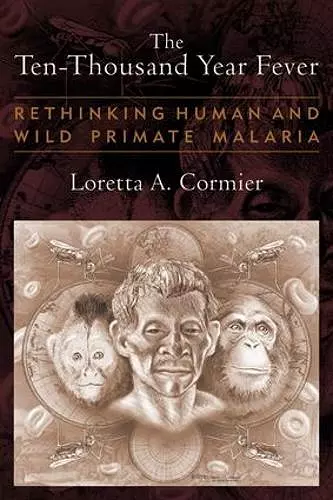The Ten-Thousand Year Fever
Rethinking Human and Wild-Primate Malarias
Format:Hardback
Publisher:Left Coast Press Inc
Published:15th Sep '11
Currently unavailable, and unfortunately no date known when it will be back
This hardback is available in another edition too:
- Paperback£39.99(9781598744835)

Malaria is one of the oldest recorded diseases in human history, and its 10,000-year relationship to primates can teach us why it will be one of the most serious threats to humanity in the 21st century. In this pathbreaking book Loretta Cormier integrates a wide range of data from molecular biology, ethnoprimatology, epidemiology, ecology, anthropology, and other fields to reveal the intimate relationships between culture and environment that shape the trajectory of a parasite. She argues against the entrenched distinction between human and non-human malarias, using ethnoprimatology to develop a new understanding of cross-species exchange. She also shows how current human-environment interactions, including deforestation and development, create the potential for new forms of malaria to threaten human populations. This book is a model of interdisciplinary integration that will be essential reading in fields from anthropology and biology to public health.
"Loretta Cormier's book on the 'ten-thousand year fever' is a major contribution to the subject. In sum, the book is well written, though of a bioarchaeological inclination, and there is an extensive bibliography. Prehistorians of the future will have to bravely tackle this kind of literature, as it will be a firm part of palaeoecological research."--Don Bothwell, Antiquity "The Ten-Thousand Year Fever is an ambitious work that assimilates ideas from several specialties in defining the natural history of primate malaria. [T]his book raises many issues that are extremely relevant to the control of malaria, especially where primate populations converge with regions nearing elimination of the disease. By understanding the human-primate dynamics and ecological changes that lead to the emergence of hyper-endemic malaria, we are better placed to ensure the next 10,000 years are mostly malaria-free."--Alasdair Hill, Lancet
ISBN: 9781598744828
Dimensions: unknown
Weight: 521g
241 pages